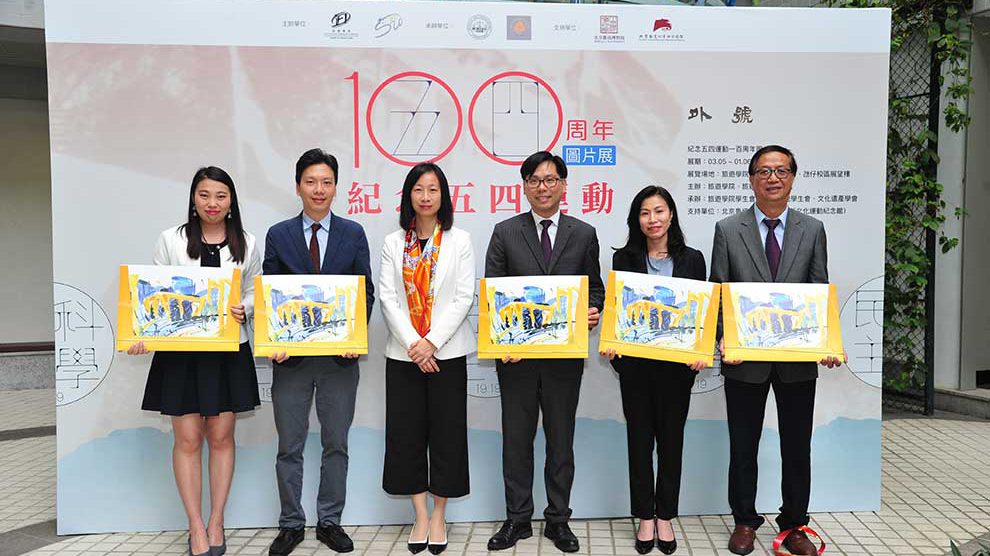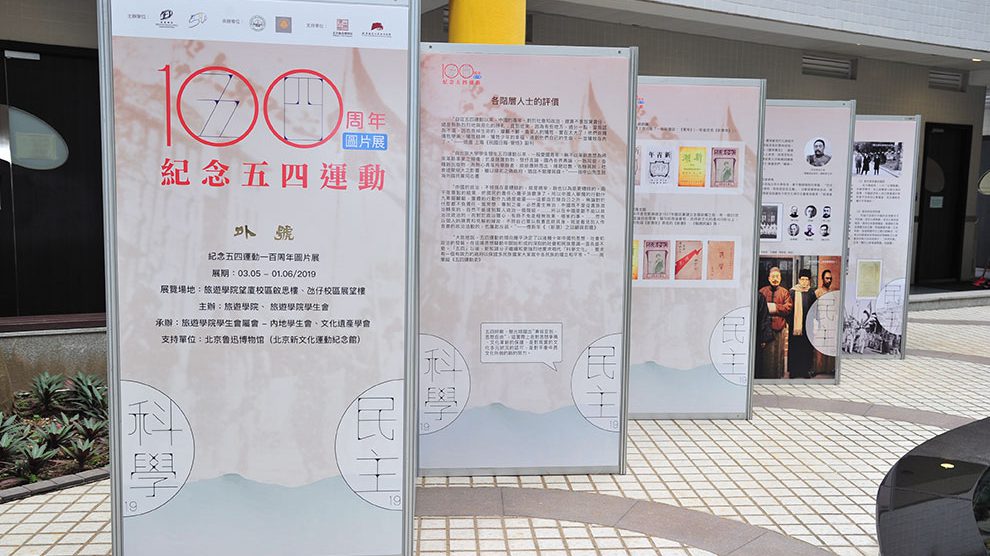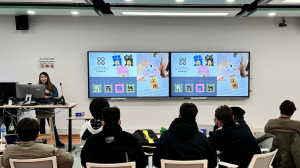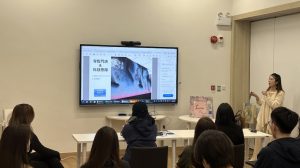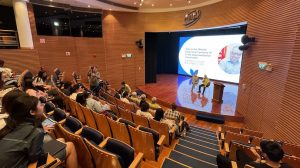IFT hosted in May a Commemorative Photo Exhibition of the 100th Anniversary of the May Fourth Movement. The exhibition was organised by the Heritage Club and by the Mainland Student Union, organisations that are “sub-clubs” of the Student Union of IFT.
The activity was supported by Beijing Luxun Museum and the New Culture Movement Memorial of Beijing.
The May Fourth Movement refers to a patriotic campaign launched by Chinese students in Beijing on 4 May, 1919. The initiative began as a protest against the decision of the Versailles Peace Conference – which drew up the treaty officially ending World War I – to transfer the former German concessions in China’s Shandong province to Japan; the protest eventually evolved into a political, cultural and anti-imperialist movement. The May Fourth Movement is considered a turning point in China’s post-imperial transformation.
“We host this exhibition hoping to look back 100 years ago with our students and lecturers, to learn about the reasons for, and the process of, the May Fourth Movement,” IFT President Dr. Fanny Vong said in a speech at the exhibition’s opening ceremony. Dr. Vong added that the May Fourth Movement could help students “reflect on what the younger generations in Macao can do to engage in the development of the country, and to contribute to society.”
The exhibition was initially planned by the Mainland Student Union, but eventually the Heritage Club was invited to help put the event together. “We thought that, in collaboration with other sub-clubs, we could gather more resources and have a more comprehensive preparation,” says Mainland Student Union President John Zhuang.
The exhibition was an attempt to raise awareness about the May Fourth Movement among IFT students. “Actually, we were surprised that most of the people around us were not really familiar with what happened during the movement,” Echo Huang, Heritage Club President, says. “Our aim was simply to let more people know about it.”
Organising the event helped the students involved to develop their communication skills, team spirit and event management abilities, the organisers state. “We enjoyed a high degree of freedom in the whole process: no lecturer or staff put limits to our planning,” says Echo. “Supporting unit Beijing Luxun Museum did help a lot in giving us advice on how to choose eye-catching photos to exhibit, and how to prepare the accompanying texts.”



